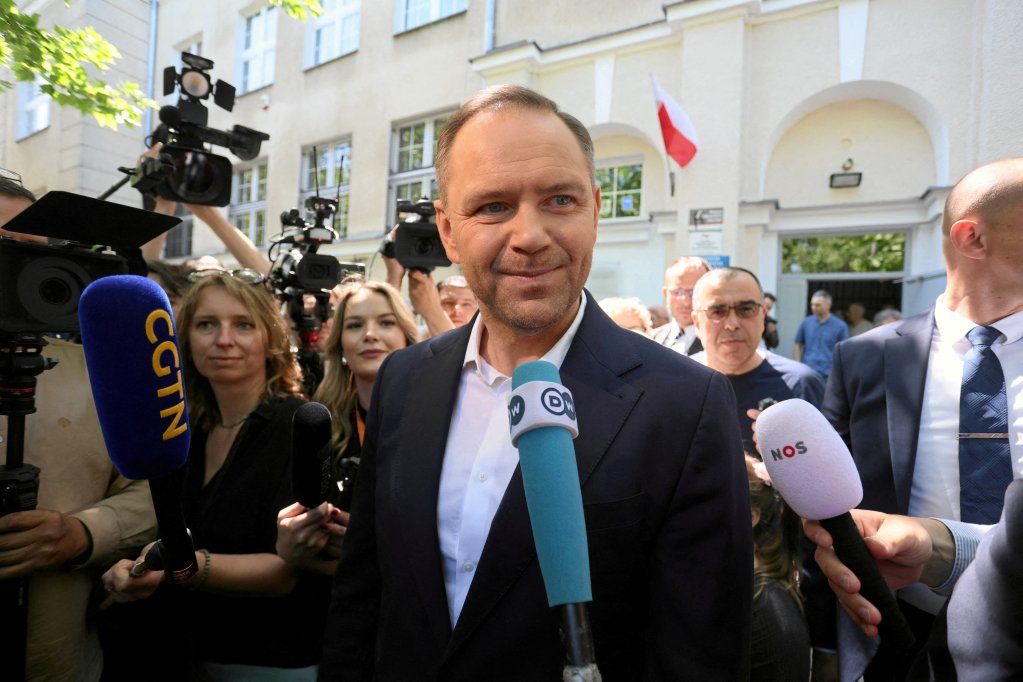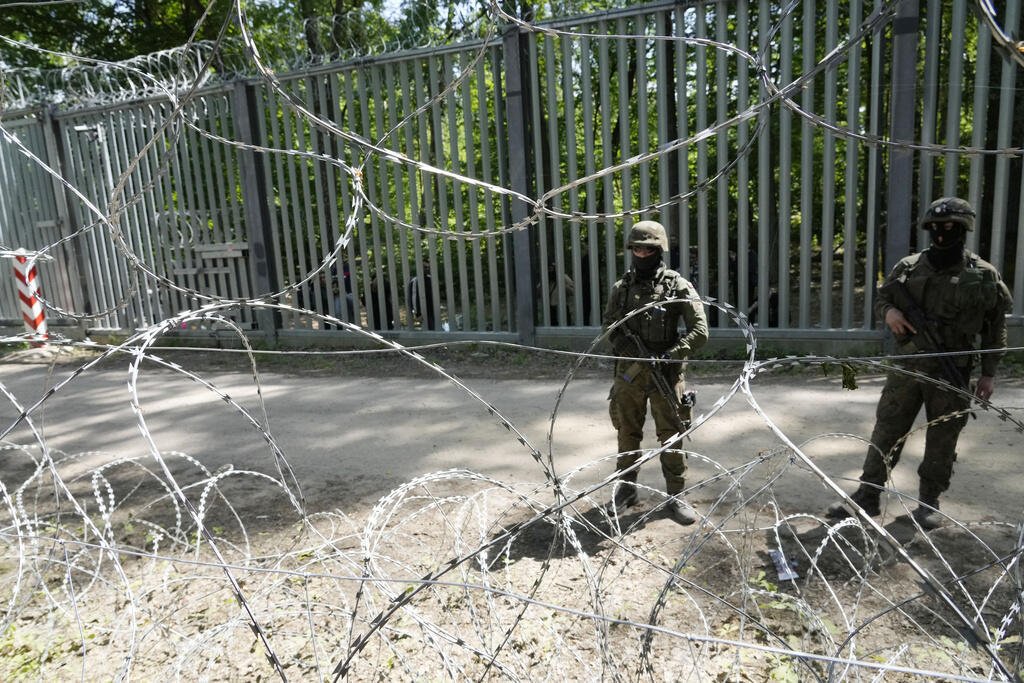Nationalist candidate Karol Nawrocki narrowly won the Polish presidential election on June 1. With his slogan "Poland first, Poles first," he targeted the million Ukrainian refugees living in the country. Poland is a member of NATO, but also of the European Union, of which he is also critical.
Karol Nawrocki, the nationalist candidate for the ultraconservative PiS (Law and Justice) party, won 50.89 percent of the vote against 49.11 percent for the liberal Rafal Trzaskowski in the second round of the presidential election held Sunday, June 1, in Poland, according to figures released Monday morning by the National Electoral Commission.
During the campaign, with his slogan "Poland first, Poles first," Karol Nawrocki took aim at the million Ukrainian refugees living in the country. Poland is a member of both NATO and the European Union, of which he is also critical.
While he has pledged to maintain Poland's support for Ukraine, which has been fighting the Russian army since February 2022, Karol Nawrocki opposes Ukraine’s entry into NATO and is critical of the aid provided to Ukrainian refugees in Poland.
Social benefits should be designed 'primarily for Poles'
In a video, the politician stated that social benefits were "primarily intended for Poles" and that, "in queues for doctors and hospitals," Poles should "have priority."
He further criticized Ukraine for not "showing gratitude for what the Poles have done," and accused the Ukrainian president of "insolence" toward Poland. After his election announcement, Volodymyr Zelensky, however, expressed his hope "to continue fruitful cooperation with Poland and with President Nawrocki personally," in a message posted on X.

Poland, a country of 38 million people, enjoys a rapidly growing economy and plays a leading role in international diplomacy regarding Ukraine. The majority of Western weapons and aid destined for Ukraine transit through its territory. Around a million Ukrainians fleeing the conflict in their country also took refuge in Poland.
Many of Karol Nawrocki's supporters want more restrictions against immigration. During his campaign, this admirer of Donald Trump advocated for the implementation of border controls with Germany to prevent the entry, or return, of migrants that may have previously transited through Poland.
In early May, the German Interior Minister announced the turnback of most asylum seekers at the border and a significant increase in checks, a measure not well received by neighboring countries, particularly Poland.
In February, Karol Nawrocki declared that irregular immigrants in Germany "endanger the Polish people."
International reactions
In a Facebook post Monday morning, Karol Nawrocki thanked his voters for their "daily support" and "commitment" to the campaign.
In Poland, the head of state, elected for five years, exercises a certain influence over foreign policy and defense matters. Most importantly, he has veto power over legislation.
Several foreign officials congratulated the new Polish president on his victory. European Commission President Ursula von der Leyen expressed, on X, her "confidence" in the continuation of "very good cooperation" with Warsaw.
German President Frank-Walter Steinmeier, for his part, called on Poland and Germany to "cooperate closely on the basis of democracy and the rule of law" in order to "ensure Europe's future in security, freedom, and prosperity."
Hungarian Prime Minister Viktor Orban, who shares the same antagonism toward Brussels as Karol Nawrocki, described his victory as "fantastic."
In France, the president of the far-right National Rally (RN) party, Marine Le Pen, saw Karol Nawrocki's victory as "good news," adding it is "a disavowal of the Brussels oligarchy."
Donald Tusk's 'more restrictive' migration policy
In 2023, the election of Donald Tusk, the current Prime Minister and leader of the governing coalition had brought some optimism to NGOs campaigning for migrant rights in the country. But humanitarians quickly became disillusioned, as measures to combat immigration multiplied. "The Tusk government's migration policy is, in some respects, more restrictive than that of its PiS predecessors," Marta Kindler, researcher and assistant professor at the Center for Migration Studies at the University of Warsaw told InfoMigrants.

In May 2024, the government reintroduced a 200-meter buffer zone on its border with Belarus, following the stabbing of a police officer. A similar decision was implemented in November 2021 by the previous nationalist PiS government, as thousands of people attempted to enter the country from neighboring Belarus. The public, NGOs, and journalists were banned from entering the zone. At the time, human rights defenders and members of Donald Tusk's Civic Coalition (KO) criticized this decision, believing it hampered the efforts of humanitarian workers to help migrants, particularly women and children.
Nevertheless, once in government, in July last year, Polish MPs approved a law authorizing agents stationed at the Belarusian border to fire live ammunition at migrants, in "self-defense" or "preventively."
In March this year, the Polish government approved a highly criticized law temporarily restricting the right to apply for international protection on Polish soil. When authorities trigger this restriction, they have to specify a specific timeframe (six months maximum, renewable by parliamentary agreement) as well as a specific area of the border where this restriction will apply. This measure was extended for another 60 days by the Polish parliament at the end of May.
